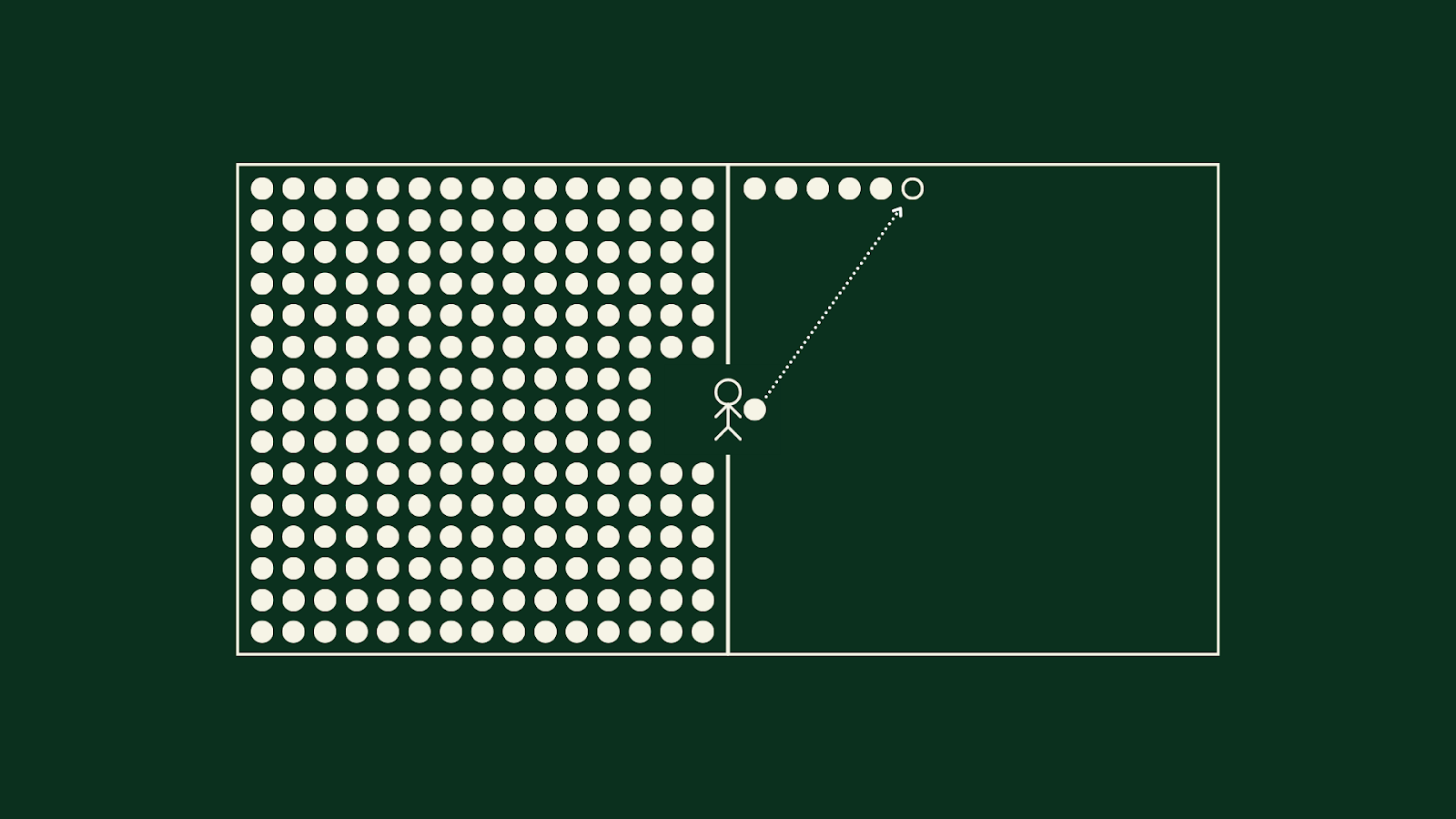Entropy: The Reality of Decay and Disorder
Why Things Fall Apart and What to Do About It
I just finished writing The 7 Mental Models of High-Impact People—a free ebook to help you get clearer, move faster, and grow stronger in your work and life. This newsletter gives you a peek at Chapter 1. Grab the full copy here
. . .
In 2004, Blockbuster was worth over $5 billion.
They had over 9,000 stores, more than 60,000 employees, and millions of loyal customers. For many families, it was a weekend ritual. Parents would pile the kids into the car, drive to the local Blockbuster, walk the aisles debating which movie to rent, and argue over popcorn or candy at the checkout.
If you weren’t around for that era, picture Blockbuster like this: Netflix—but slower, clunkier, and physical. You had to leave the house. You had to rewind the tape. You had to return it on time—or pay the price.
Netflix, back then, was barely a blip. At the time, it was mailing DVDs in red envelopes. Their streaming feature was still years away. Blockbuster had even passed up the chance to buy Netflix for $50 million.
But things started to shift.
Netflix slowly improved. They made returning DVDs easier. They introduced user reviews, better recommendation algorithms, and eventually, streaming. All while Blockbuster kept pushing late fees, overpriced snacks, and complicated store policies. They had more money, more stores, and more customers—but none of it mattered.
What happened?
Blockbuster didn't collapse all at once. There was no single fatal blow. The business didn't explode. It eroded gradually. Then suddenly.
There were warning signs. But no one acted with urgency. There were attempts to catch up, but they were either too slow, too bureaucratic, or too politically motivated to make a difference.
One of their CEOs tried to pivot the company toward digital. Internal resistance killed the plan. Another leader rolled out a Netflix-style subscription model. It was poorly executed and lacked leadership support. Instead of reorganizing from the inside out, they stayed the course, hoping things would fix themselves.
They didn’t.
In 2010, Blockbuster filed for bankruptcy. By then, Netflix had already launched its streaming service, expanded into original content, and grown into a global tech company.
Blockbuster didn’t fail because of a single bad decision. They failed because they stopped making good ones.
What is Entropy?
Think about your desk.
Not on Monday morning when everything is fresh and clean. Think Friday afternoon.
Papers you meant to file. Scribbled post-its with cryptic to-dos. A half-eaten protein bar. Coffee mugs breeding rings on your table. Dust collecting in the corners of your monitor. A charger you borrowed from someone but never returned.
You didn’t wreck your workspace. You just left it alone.
That’s entropy.
It’s not just clutter. It’s the natural drift toward disorder. It happens when you don’t decide. When you don’t act. When you tell yourself, "I'll deal with it later."
A messy desk is easy to fix. But what about:
- An inbox you’ve been ignoring?
- A conversation you keep postponing?
- A habit you abandoned for just one week, then two, then five?
Things fall apart not because we make destructive choices. They fall apart because we don’t make any.
In my most chaotic season of work, I skipped just one workout. Then another. Then a week passed. Then two. I told myself I was just “busy,” that I’d restart next Monday. But next Monday didn’t come.
It wasn’t a crash. It was a slow unraveling—of energy, confidence, clarity. My sleep got worse. My diet slipped. My calendar became a mess. All from skipping a few gym sessions.
That’s how entropy works. You don’t fall. You drift.
The Antidote: Conscious Decisions
In science, this is called the Second Law of Thermodynamics.
It states that in an isolated system, entropy—or the measure of disorder—always increases over time. In plain terms, it means that without energy or effort to maintain structure, things naturally fall apart.
Imagine two rooms connected by a small door. In the first room, particles are neatly arranged; the second room is empty. Left alone, particles will slowly drift through the door, filling the second room in random positions. Over time, both rooms become a mix of scattered particles, the order giving way to disorder.

Now, picture placing a person at the doorway. Every time a particle crosses, this person decides whether to leave it where it lands or to put it somewhere specific. That choice—to act or to do nothing—mirrors how we can influence entropy in our own lives.

Like a child's room: if no one tidies it, toys get scattered, clothes pile up, and chaos takes over. It doesn’t require destruction to become messy. Just time and neglect.
The same principle applies to everything—from physical spaces to personal habits to complex organizations. Left alone, they all slide toward disorder unless you actively keep them in check.
A house, if abandoned, doesn’t stay clean. It gets dusty, then moldy. Pipes crack. Pests take over.
A parked car doesn’t stay pristine. It collects dirt. Rubber hardens. Batteries die.
A business without intentional leadership doesn’t stay on course. Priorities blur. Teams lose direction. Processes become bloated. Before long, customers churn, revenue dips, and internal chaos spreads—not because someone broke it, but because no one maintained it.
Your mind, your health, your calendar, your priorities—they all follow the same rule.
Entropy is the default. Order requires effort. It’s not a flaw in the system. It is the system.
So if you want clarity, structure, momentum—you can’t hope things will just work out. You have to push against the current.
Every single day.
Observe, Decide, Act
Maintaining order is not a one-time job.
You don’t clean your house once and expect it to stay clean forever. You don’t organize your life on January 1st and expect it to last till December.
You have to maintain it. Consistently.
To maintain it, you need to keep making choices. Entropy wins by default. You win by decision.
That means building systems, not just reacting. That means checking in regularly, not just when things feel urgent. That means making a conscious effort to:
- Observe and arrange. Notice what’s changing. Pay attention to small signals before they become big problems. Then sort and structure—tasks, thoughts, even emotions—before they spiral out of place.
- Decide fast. Don’t wait until you’re ready. Most entropy creeps in while you’re hesitating. Make the best call you can now. You can always adjust—but drift is dangerous.
- Act with intent. Plans don’t fix problems. Action does. Even small steps—an email, a draft, a check-in—can stop disorder from spreading. Keep momentum on your side.
The most successful people and businesses don’t have perfect systems—they have the discipline to revisit and refine them. Netflix didn’t just get lucky. They evolved, adapted, and made conscious decisions repeatedly.
Blockbuster coasted—and paid the price.
You can apply this anywhere:
- Your body
- Your finances
- Your calendar
- Your relationships
- Your digital workspace
Everything decays when left unattended.
But it doesn’t have to if you keep choosing. If you keep showing up. If you keep doing the small, boring things that hold the big things together.


